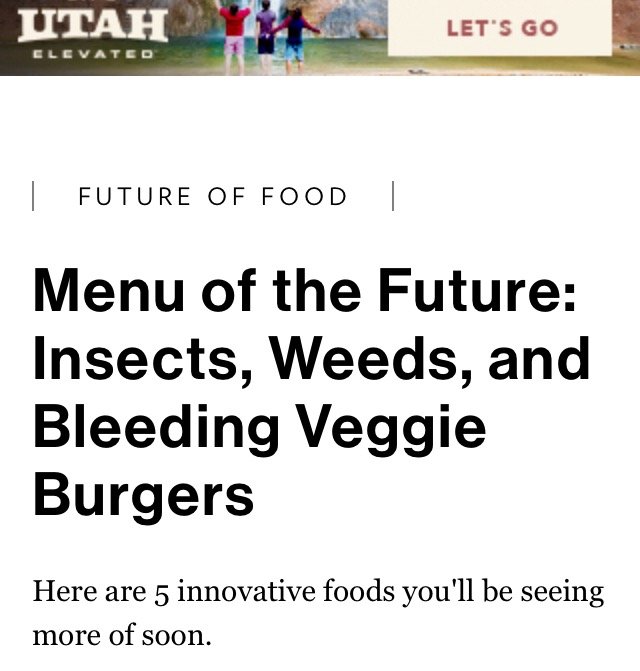
"Global food expert Raj Patel says much of the future will be concerned with making better use of what we already have. “A lot of our industrial agricultural system is about deciding on a favorite companion species, like grain,” he says, and then considering everything else a weed or a pest. “The 21st century is recognizing that the things that were weeds and pests can turn out to be food.”
"From an environmental perspective, the appeal of bugs—particularly crickets—is clear. Crickets offer more protein and micronutrients per pound than beef. They thrive in dark, densely crowded conditions, so they can be farmed vertically, allowing for large-scale production on a tiny footprint. They produce relatively little waste, avoiding the manure lagoons that plague hog and cattle farms."
So, it's no secret that I don't eat animals nor the stuff that comes from animals. Milk, butter, cheese, eggs all that stuff Except honey. I still consume honey so technically my diet is not vegan but rather a 'plant based' diet. But hey, honey is amazing and I'll debate any vegan on the health benefits and ethics of eating honey any day. But not on this post. I want to focus on the topic at hand. The topic: The social conditioning of our perception of food and the mental manipulation that holds ransom over our food choices.
I know that eating insects is nothing new for humanity and in some places around the world they still do, but in western culture... not so much.
But For decades we've seen people eating insects on TV, such as contestants on fear factor. Doing so based on the promise of winning money.
It's interesting if you think about it. What is the prize if we start adding insects to our diets here in North America? Or rather what do we have to lose if we don't?
The way I look at it, if you wanted to convince a society that they needed to eat bugs, money isn't going to be enough. You need to use fear to convince them that they need too.
What possible fear could that be? Climate change? mmhmm yup yup. To reduce your carbon footprint and save the planet, you need to start eating bugs in lieu of your typical livestock.
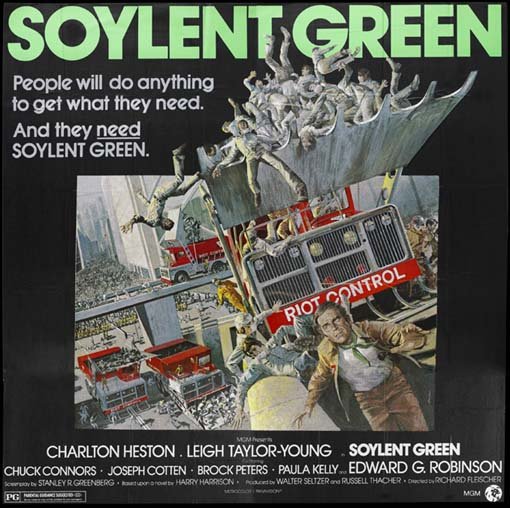
"The 20th century's industrialization led to overcrowding, pollution and global warming due to the greenhouse effect. In 2022, 40 million people live in New York City"
"most of the population surviving on rations produced by the Soylent Corporation. Their latest product is Soylent Green, a green wafer advertised to contain "high-energy plankton" from the World Ocean, more nutritious and palatable than its predecessors "Red" and "Yellow" but in short supply." -Wikipedia
^ Predictive programming. We see similar themes of today, over-population, global warming, not enough food or so are we going to have enough food to continue?
Don't get me wrong, I know more than most that eating meat is extremely wasteful and inefficient. There's a lot of land required, water usage and water pollution is nothing to laugh at. And yes, it even produces more ghg into the environment than most industries.
Not to mention the huge ethical issue in the production of animals as well. From the massive farming operations to the slaughtering facilities. If you have any respect for life, you would avoid supporting these industries like the plague.
And lastly it's really unhealthy for you. If you don't believe me, I encourage you to check out a massive 3 part post written by @lifting-theveil who went all out on the research, expanding upon all the information I've known for years.
part 1
part 2
part 3
However, after really looking at everything that's going on today, and the 'facts' that have been presented by these leaders on climate change. I have grown very skeptic with regards to our actual influence on the climate. Even though I'm still very much against animal Ag, for the harm it reaps on the land and its resources, and for the health issues that eating animals has caused in general.
As far as pushing it as the main cause for the destruction of our planet goes. That is something I can no longer do. I will not go around spreading fear, for the sake of promoting an optimum diet of plant based foods. Even though it was the best decision I have ever made for my own health
Insect products are making their way into the retail market.
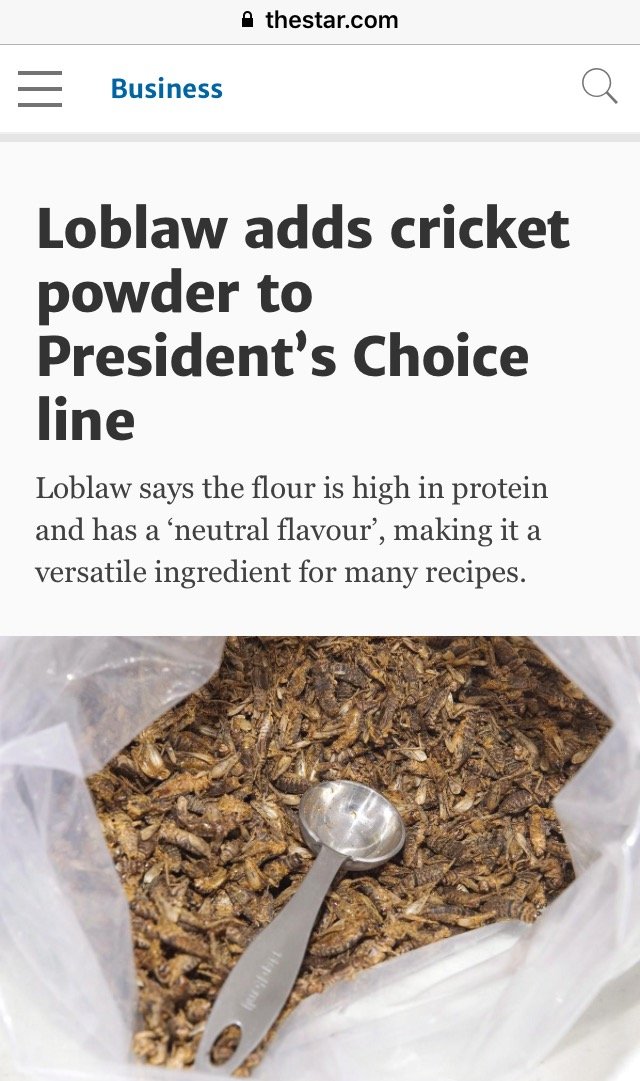
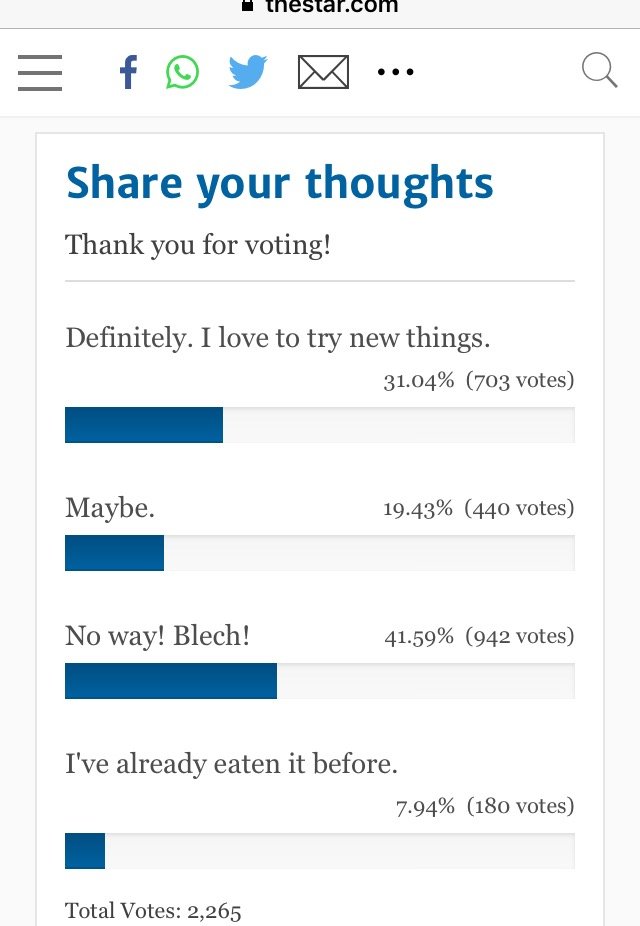
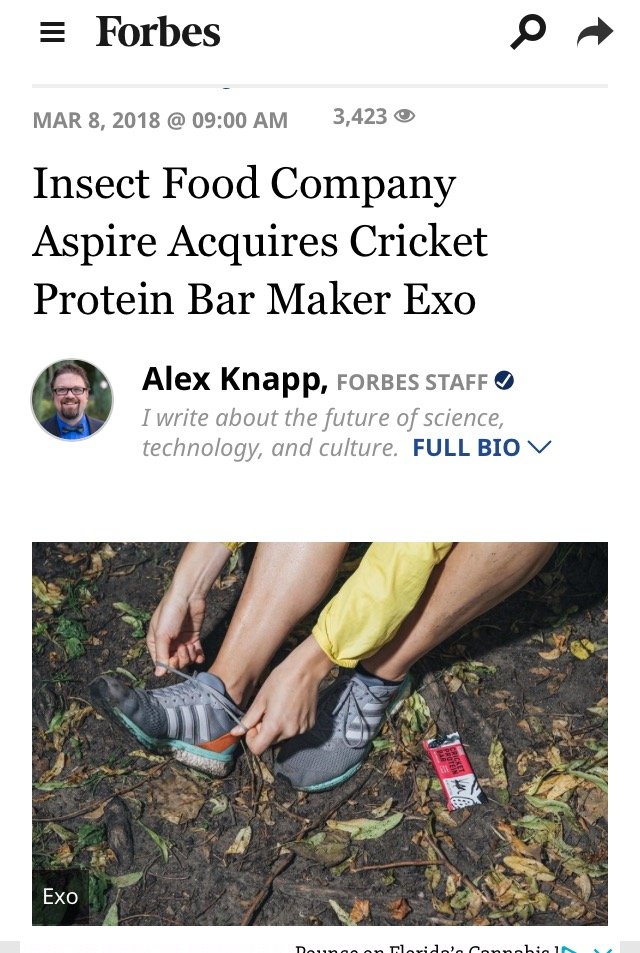
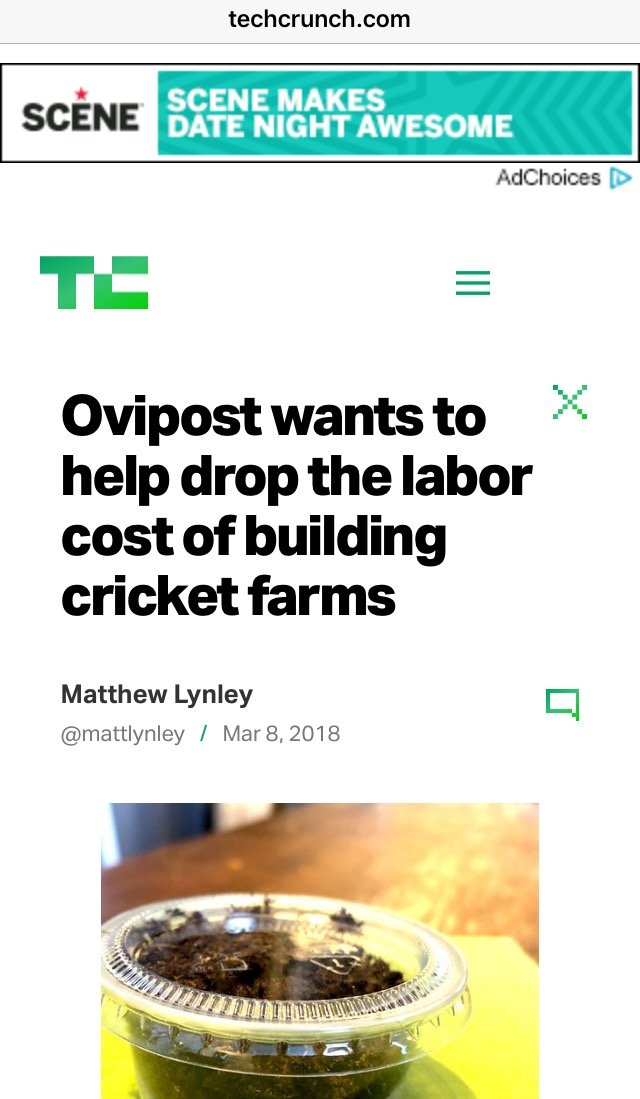
"And the other part is the average consumer just getting over the fact that they’re eating crickets, too, to get them in the mindset that it’s an important potential food source."

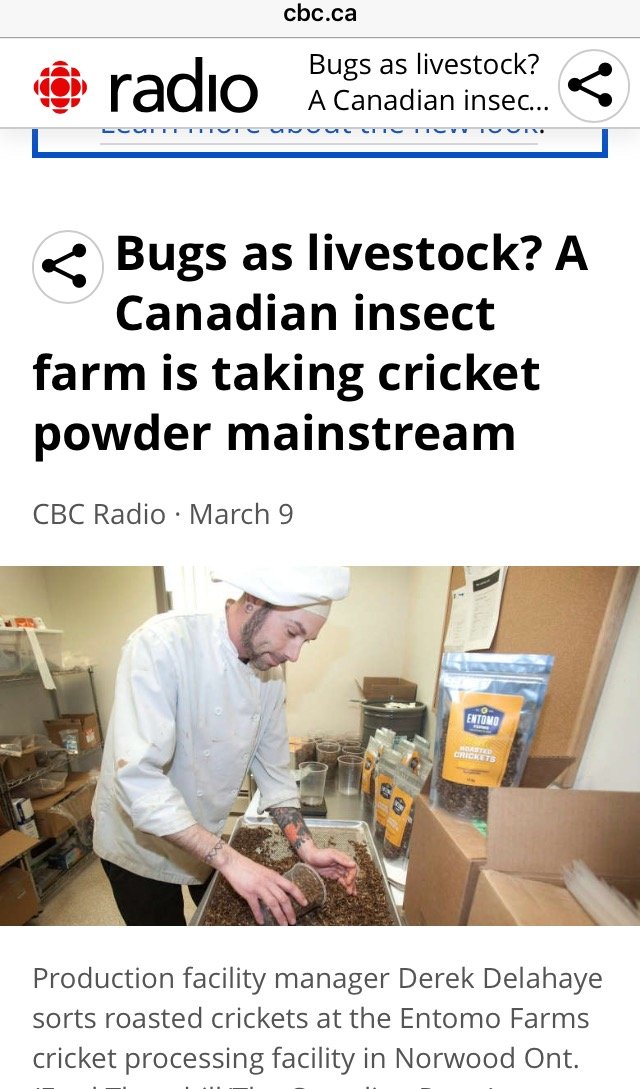
"It's yummy and delicious. It's extremely healthy, and it's really good for the environment," Goldin tells Day 6 host Brent Bambury. "

Hmm, yummy and delicious? Before or after you season the crap out of it?
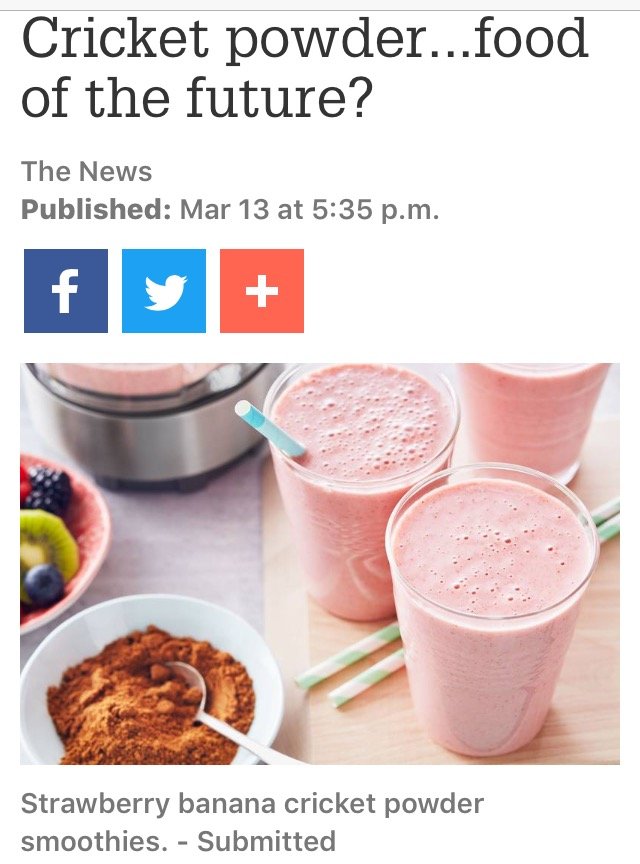
"Cricket powder will add a subtle nutty or earthly flavour to a wide variety of dishes; if you use a small amount, you won’t taste it at all."
In other words, it actually tastes like dirt. Mmm mmm!
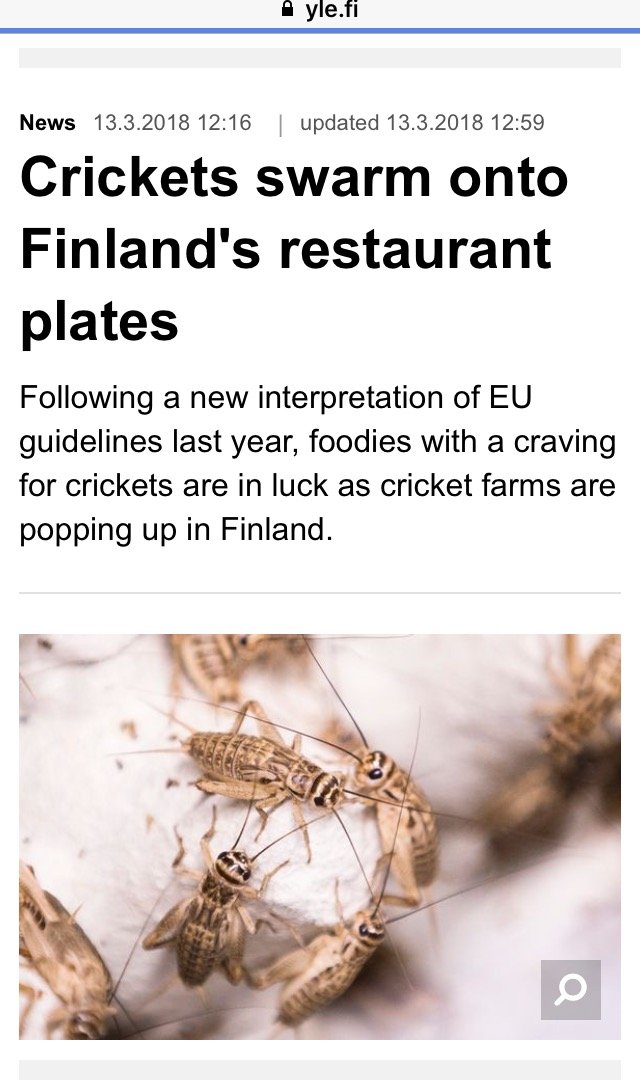
“It was surprising how quickly a variety of insect products have entered the market. There is already a big selection for sale in stores too,” observes Keski-Saari of Evira."
A vegan (Bizarre choice) couldn't hack it, and yet they make it seem like it's the end of the world because of it.
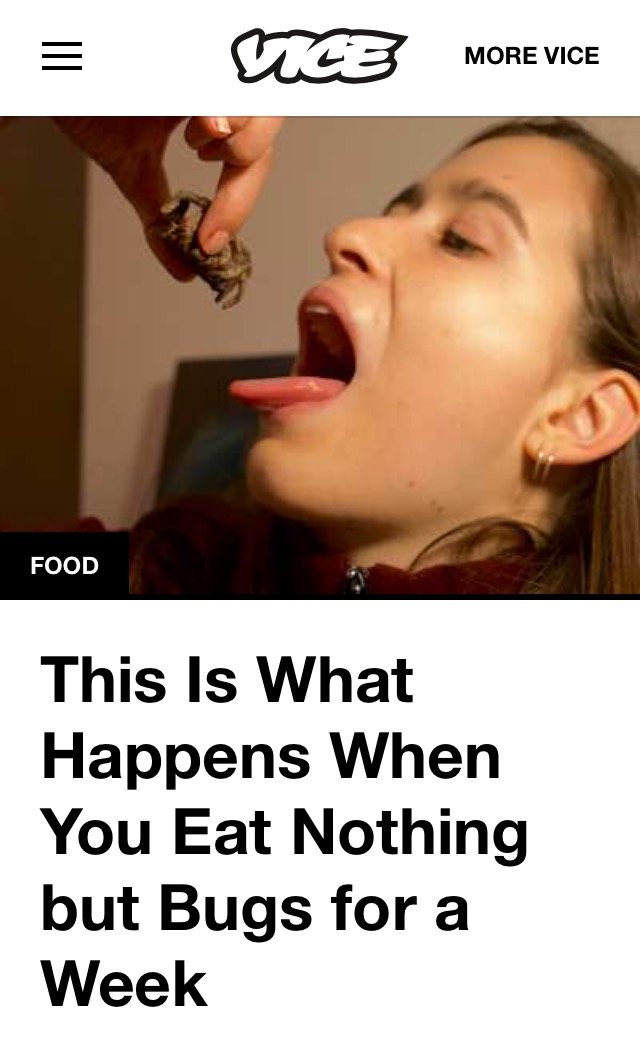
"It was now day six of my seven-day entomophagy trial, and I wasn’t any closer to adopting bugs into my diet. And with that realization, I decided the world has no hope. If I’m reluctant to eat bugs, what’s the likelihood of a blue collar type in a conservative seat adopting entomophagy in front of his mates? None, I thought. No chance at all."
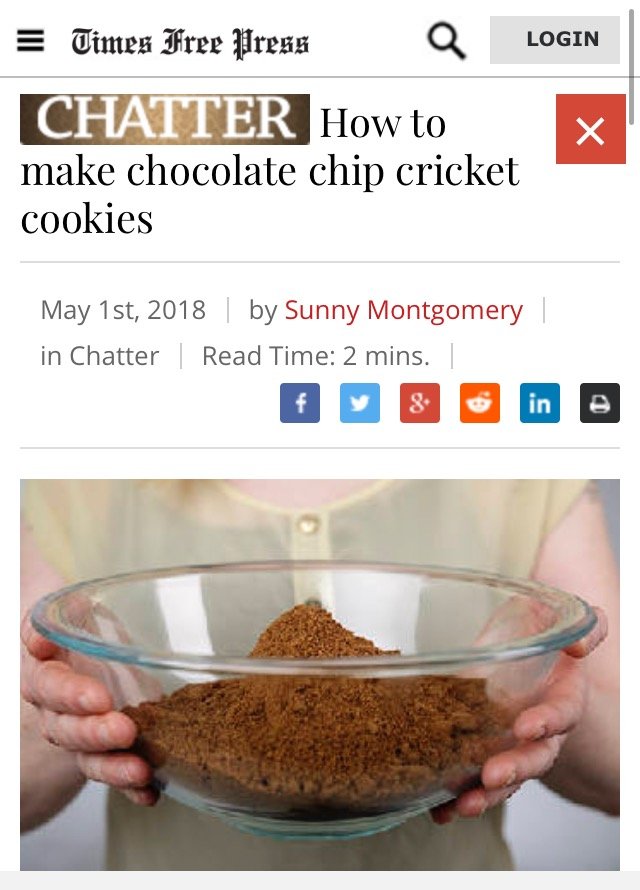
"Indeed, before I personally can consider cricket flour a sustainable alternative to beef, pork or poultry, cricket cultivation will also need to become more cost effective. In the meantime, I'm committed to overcoming my societal aversion to eating bugs. To me, entomophagy is more than a trend, it is a revolution."
"In a small bowl, combine flour, baking soda and salt. Set aside. In a large bowl, combine butter, sugar, brown sugar and vanilla and beat until creamy. Beat in eggs. Gradually add cricket flour mixture and mix well. Stir in chocolate chips."
Correct me if I'm wrong, but if you are substituting wheat flour for cricket flour in the name of sustainability, but still adding eggs and butter regular flour to the mix. Where's the sustainability in that? What did it replace?
I mean, I can make those same cookies, without eggs and without dairy butter. And have a better tasting, more sustainable cookie than their gritty bug cookie. LoL
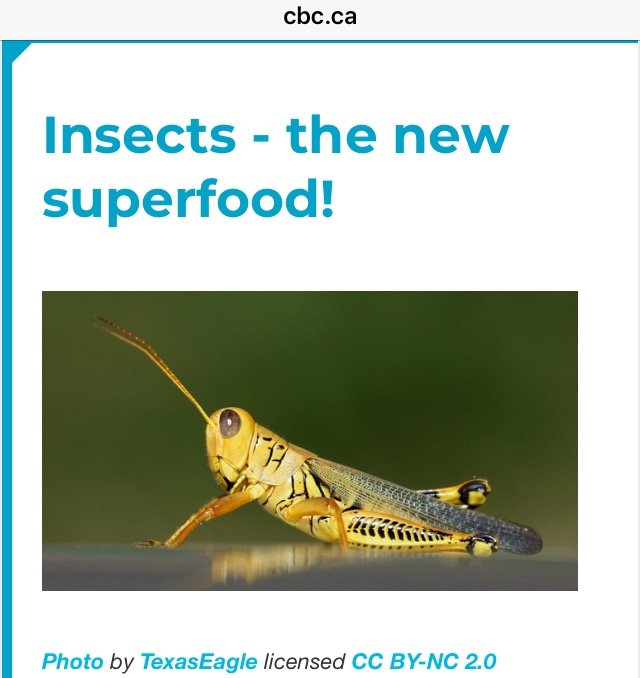
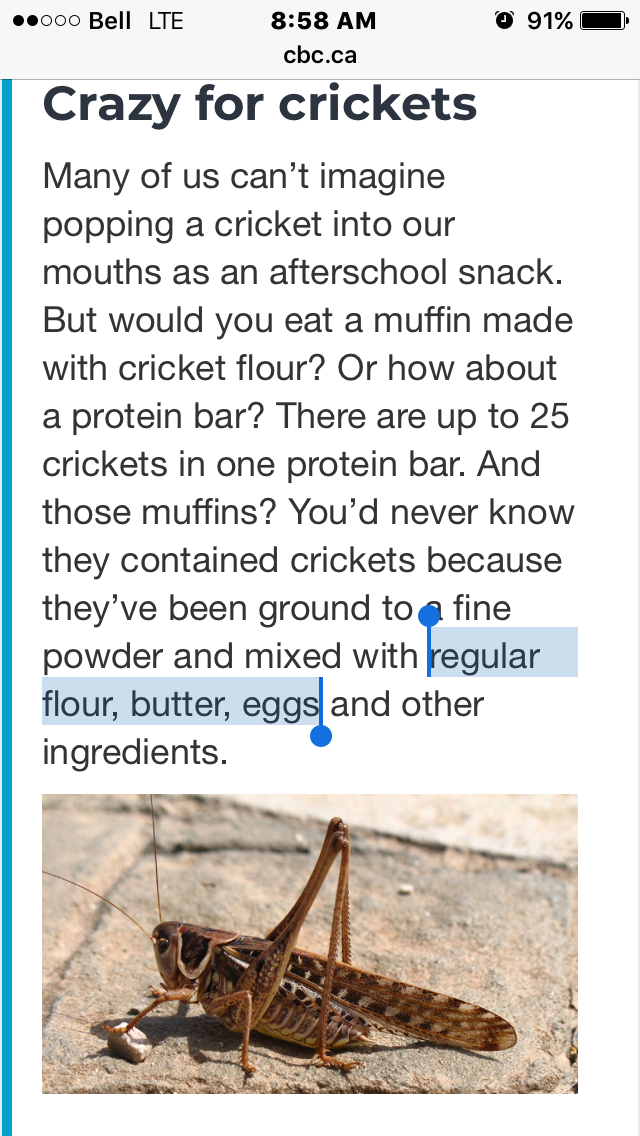
"Remember that book How to Eat Fried Worms? A kid dares the main character, Billy, to eat 15 worms in 15 days. Billy does it, and he ends up liking it. Most of you are probably thinking gross!
But maybe Billy was on to something. Studies are saying that eating insects could be good for you and the planet. True, a worm isn’t an insect, but the thought of eating one may make you shiver just as much as the thought of eating a plate of fried crickets.
So why are insects - the farmed kind, not ones you’d pluck out of the ground - great to eat?"
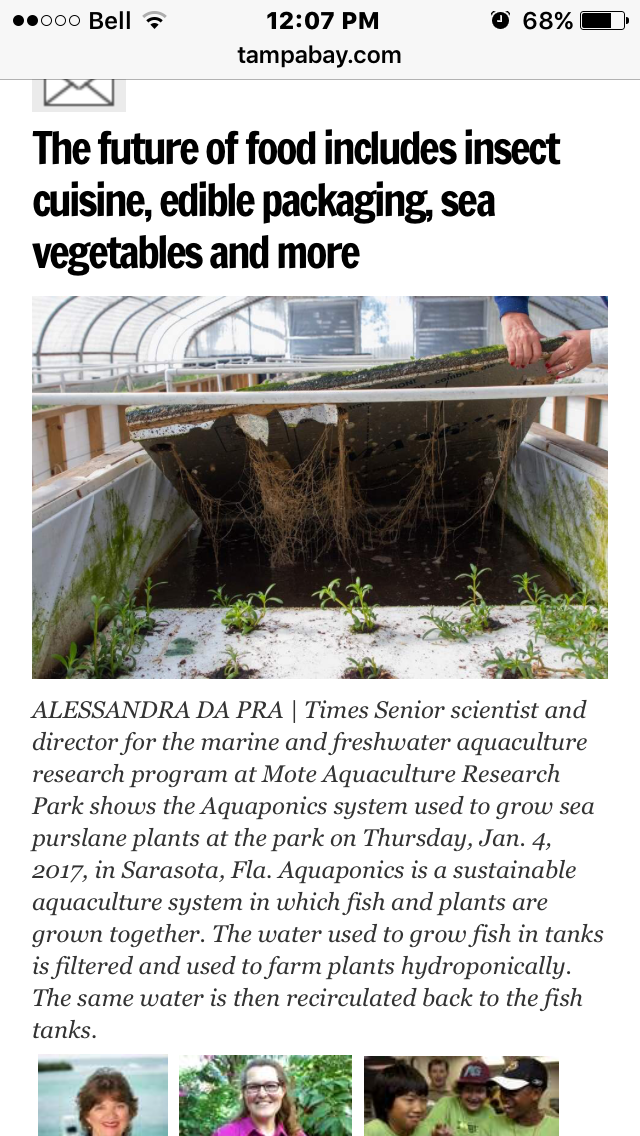
"With a current world population of 7.2 billion, the United Nations is projecting an increase of 1 billion people over the next 12 years, and 9.6 billion by 2050. To meet the population’s needs, our food system is in transition. We need to produce, transport, sell and prepare more food, more efficiently. But which foods, and what kind of transportation?"
1 billion more people in the next 12 years huh? Interesting, what year would that be hmmm? Oh yeah! 2030! Ya know, like UN Agenda2030 (formerly known as Agenda21). Oh what a coincidence! Hmm... that's really funny because agenda 2030 is all about sustainable development.
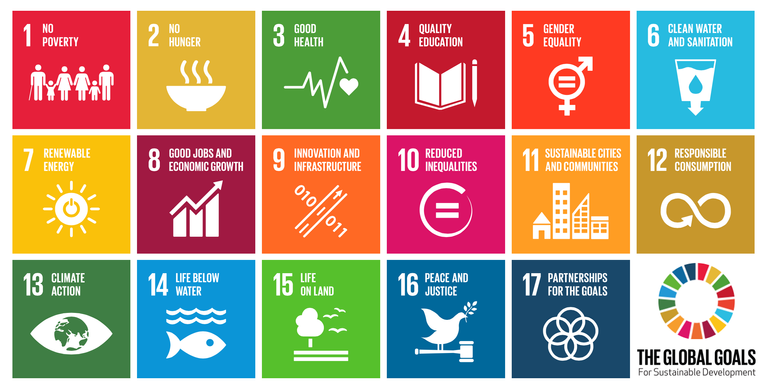
The 17 global goals of sustainable development.
Who's recommending we switch to an insect diet? The United Nations. (Link here)
Unfamiliar with Agenda2030? Well I recently talked a bit about it in my last big post.

Tiny homes, Agenda 2030 and Climate Change: What's the connection?
Where I discussed how I believe that the tiny home movement is being used to condition us into giving up more land and living space in order for the UN and the elite powers, to cram us all into micro apartments within the megacities. All the while leaving them with mass swathes of land and resources to do with as they wish. While we (the people) will own little to nothing, living in micro-apartments (with no room for families), eating bugs and other rationed foods, sourced all in the name of sustainable development.
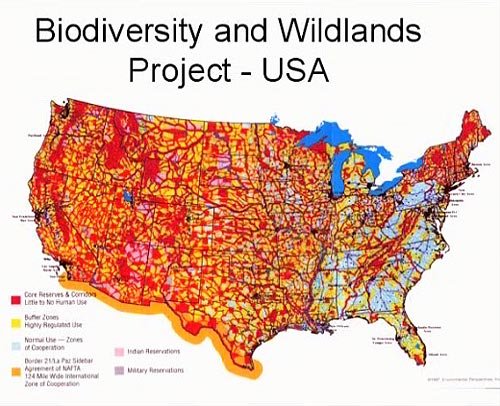
Am I taking a large leap here? Well take a look at these short films made by Forum for the future. Which is a British non-profit organization with a mission to promote SUSTAINABLE DEVELOPMENT!
planned-opolis and the 3 other scenarios for the future.
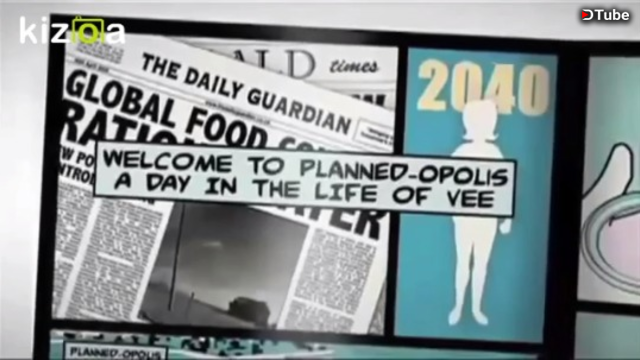
Better yet! Watch this video by @corbettreport
Rant
So in closing I'd like to point out that there is a certain group of people (you're not suppose to talk about) heavily involved in pushing these types of ideas into western culture. You only need to look at who runs your media, entertainment, banks, politics, marketplace, etc. To see the serious over-representation of the tribe.
When I see things like the tiny home movement or "bugs are the food of the future." I look pass what they are telling me is the reason, (the ostensible purpose). And try to figure out what the real purpose is, what they really have to gain from us making these shifts in lifestyle, diet, etc.
I know bugs have been a part of the human diet since the dawn of time. And I have no doubt they are nutritious, and better on land and resources than animal livestock, sure. But it's not about that, they just want to shrink us down as much as possible. We are really the cattle to them, and this is the feed they want to push on us. For their benefit, not the planet's.
Anyways, please feel free to leave your questions or comments below and as always...I thank you for reading!


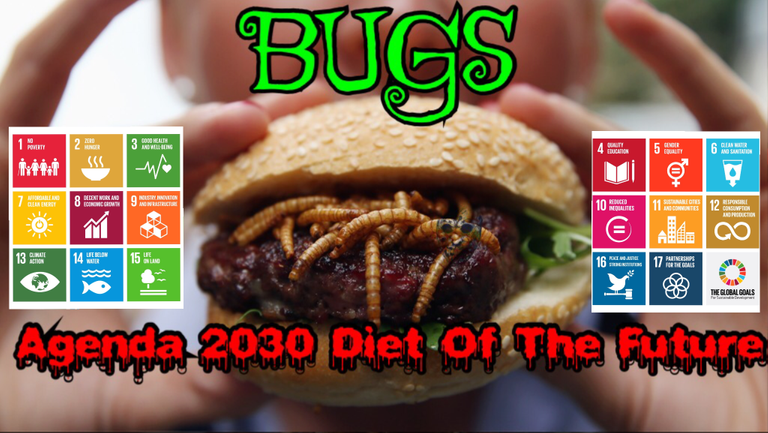


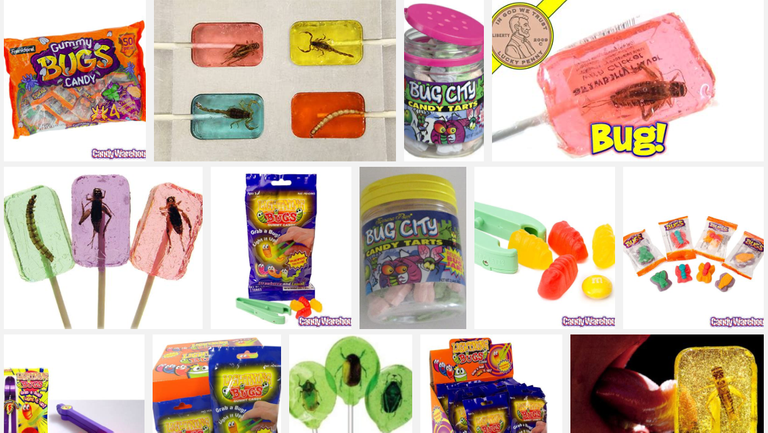
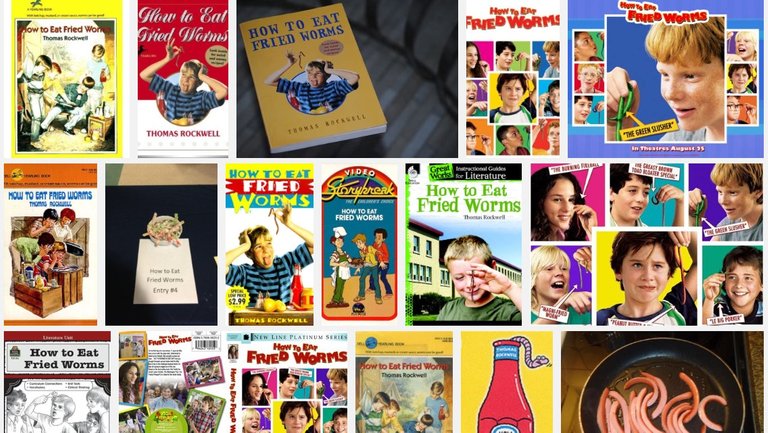
Nice article venomnymous. Although I have to disagree about one item you mentioned about plant based diet. I work in the construction/welding industry and there were 2 guys that worked with me on a project. They ate only plant based diet and these guys did not look healthy. In fact they were barely able to do most of the strenuous activity. Come to think of it, all the burliest men I've ever met eat meat. This is purely anecdotal evidence but its all I've got.
We raise our own livestock, have our own beehives and grow most of our own produce so I'm not effected nor contributing to the horrendous way industry treats livestock or the earth. In this regard, I agree, there should be a change but I think there already is. Many farmers and livestock producers are finding alternative ways of agricultural production. From organically grown produce to responsible animal husbandry.
Most of the studies Ive seen that outline the poor health effects of eating meat usually use the poorly produced industry grown meat. This doesnt surprise me as there has to be some serious effects on the meat from traumatized animals. From toxic build up in meat from close quarter living, to all hormones released during their entire trauma filled lives and finally the complete disrespect shown at slaughter time. Id be curious to see a study that exclusively used responsibly raise livestock.
My two cents. Thanks again
Thank you! Much appreciated.
Ah well anecdotally speaking I've been living plant based for nearly a decade, never had an issue with weakness or low energy. No matter how strenuous the activity.
A burly, muscly man may not also be a great indicator of manliness. The muscly Shawn Baker who is on an all meat diet. Had a recent blood test with not so great test results, including the testosterone of a 90 yr old lol
As far as your situation goes. I think getting back to homesteading is a really important move in making society healthier as a whole. regardless of whether they participate in animal husbandry or not, at least they are getting their hands dirty when they do it.
As far as health studies on meat go, I get what you are saying. However, I've never heard of a release of hormones due to trauma. Certainly no case of an animal having say, more estrogen because of the way they are treated .
"How are we exposed to dioxin?
The major sources of dioxin are in our diet. Since dioxin is fat-soluble, it bioaccumulates, climbing up the food chain. A North American eating a typical North American diet will receive 93% of their dioxin exposure from meat and dairy products (23% is from milk and dairy alone; the other large sources of exposure are beef, fish, pork, poultry and eggs)****. And yes, THAT DOES ALSO INCLUDE SO CALLED "ORGANIC, FREE RANGE, HUMANE, GRASS FED, LOCAL ETC ETC." In fish, these toxins bioaccumulate up the food chain so that dioxin levels in fish are 100,000 times that of the surrounding environment." - source from part one of the 3 part I included in my article.
I would like to see a study like that too.
This study is sorta in the region of that. A small indication.
https://www.ncbi.nlm.nih.gov/m/pubmed/23375414/
Well either way I thank you for your thoughts. I always enjoy a comment that can motivate me to do a little digging around my collection of info. Albeit not as much as I'd like to provide, but alas it's too late and nothing makes me sleepier than reading a bunch of stuff.
Have a great night or morning, depending on what time you read this response.
Thanks for the lengthy response. I read over lifting the veils work and took a couple screen shot of sections that just seemed ridiculous to me.
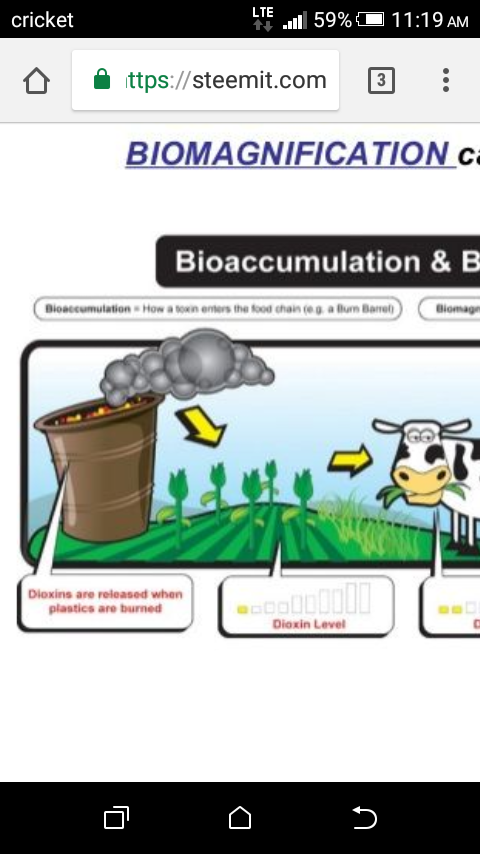
So here we are to believe that source for harmful bioaccumulation is backyard burn barrels. Next itll be wood burning stoves. Forcing everyone to buy all that petroleum.
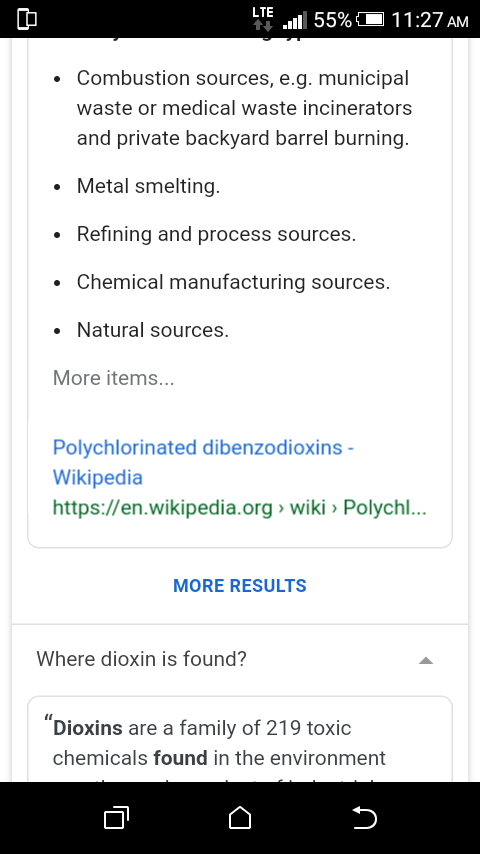
Google is all over the barrel burners too
Finally this little gem in his article
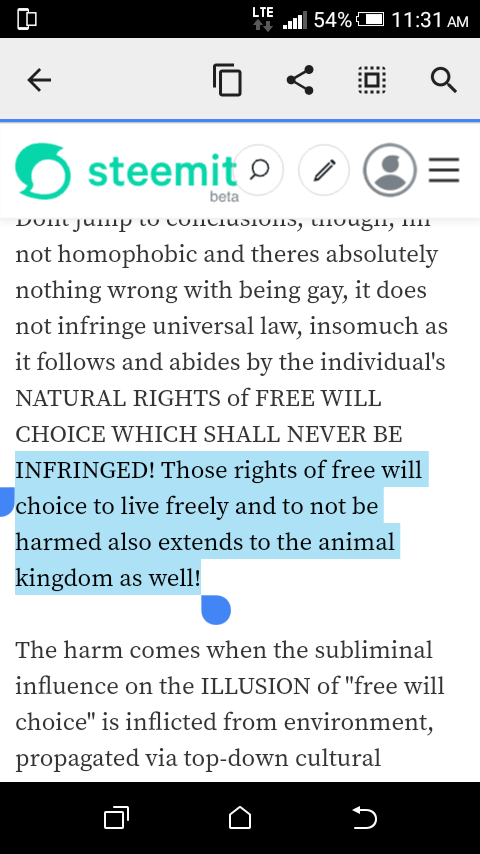
I really dont understand these types of comments in what describes itself as scientific research. These sorts of images and statements only further the agenda 2030 and imo are not productive but instead deceptive.
Hope I didnt offend too much.
Ah yeah, some of those graphics are not the best nor would be my approach. burning barrels is definitely on the small end of that. I used to burn the garbage for my mom on her acreage back in the day. But we didn't have much garbage, and we didn't have any animals. Factories are more of an issue imo.
Yeah, I don't 100% agree wirh that statement about animals. I'm for animal protection from industry, zoos and cruel science experience/ vivisection type stuff.
Ah nah no offense here. It's all good. I appreciate you pointing out such things, so that I may clarify my position better.
Ttyl
I noticed this too. Bäh, disgusting jungle shows and stupid game shows. @ venomnymous are you ceeping bees on your own? I started this year ceeping bees and would love to see how others in this great community are handling it.
Not yet, but beekeeping is definitely on the list of things I want to do. For sure!